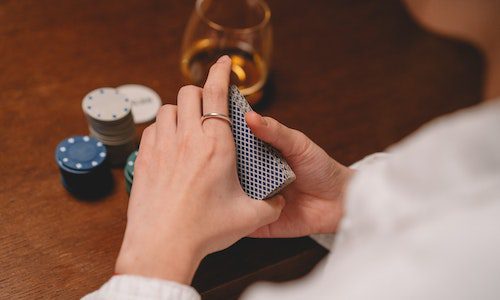Almost everyone in recovery from a drug or alcohol addiction faces the possibility of a substitute addiction occurring. A substitute addiction develops when a drug or alcohol addiction is replaced with another unhealthy and compulsive action or behavior. The person continues to engage excessively in the replacement action or behavior even when it causes problems in their life.
Engaging in the substitute addiction provides a way for the brain to produce the feel-good neurotransmitter dopamine that substance use once stimulated. Many times, a person replaces a drug or alcohol addiction with another addiction because the underlying cause of their addiction is still present.
Common Substitute Addictions for People in Addiction Recovery
We list below some types of replacement addictions commonly found in people in recovery. Some of these addictions involve another substance, like food, and others are centered around compulsive behaviors.
Food Addiction: Many people use food as a source of emotional comfort. Food addiction often occurs during the early stage of addiction recovery. When a person stops drinking or using drugs, they may turn their focus to food and overindulge in sugary, fatty, or fast foods. They may overeat or binge on certain types of foods. Food addictions can result in weight gain, nutritional deficiencies, and low energy levels. Without a balanced diet, it is harder to maintain sobriety.
Shopping Addiction: Most people think of a shopping addiction as when a person compulsively buys clothes or shoes. However, anyone who continually buys unnecessary or unaffordable things they do not need or want has a shopping addiction. Home decor, collectibles, jewelry, accessories, sporting equipment, and gifts for others are examples of items that can be the focus of a person’s shopping addiction. They may not even be attracted to what they buy. They are attracted to the thrill they get from shopping. Some people hide their purchases from their family and friends because they feel ashamed or embarrassed. Their shopping can cause financial stress and damage relationships.
Sexual Addiction: Sexual addiction occurs when a person cannot manage their sexual behavior. They may compulsively engage in casual unprotected sex, cheat on their spouse, excessively masturbate, or become addicted to pornography. Their persistent and compulsive sexual activities can cause problems with their relationships and everyday lives.
Video Game Addiction: Playing video games allows a person to become immersed in a fantasy world that provides an escape from the real world and instant gratification. Spending too much time playing video games can result in loss of friends, social isolation, and loss of interest in recovery.
Work Addiction: Enjoying your work, rebuilding your career, or wanting to do your best at work are admirable goals but not if you become obsessed with work. Sometimes referred to as workaholism, work addiction leads to an unbalanced life, causing the person to neglect their self-care and personal relationships. It often leads to dissatisfaction with life and may become an excuse to relapse.
Gambling Addiction: When a person risks something they have of value trying to get something more valuable, they are gambling. A gambling addiction means the person cannot stop gambling despite the negative consequences it has on their life. Gambling includes betting in any form, such as sports betting, online casinos, land or floating casinos, scratch-offs, and lottery tickets. The person may use up their savings, go into debt, and have financial problems. Some may even turn to fraud or theft to support their gambling addiction.
Signs of a Substitute Addiction
The signs of a substitute addiction are very similar to the signs of a drug or alcohol addiction. Although everyone experiences addiction differently, here are ten common signs of a substitute addiction.
- You feel ashamed, guilty, or embarrassed by the behavior.
- You cannot stop or change your behavior even though you have tried.
- You feel powerless when it comes to your addictive behaviors.
- You feel irritable or anxious when you cannot engage in the behavior.
- Your family and friends have expressed their concern over your actions or behaviors.
- You lie about your activities to family and friends or become defensive when they talk about it.
- You neglect relationships, work responsibilities, and essential areas of self-care.
- You experience negative consequences, such as financial difficulties or health problems caused by your actions.
- You engage in illegal or unethical practices to continue your addiction.
- When you are unable to engage in the behavior, you do not feel like yourself.
We Can Help
If you feel your behaviors or actions suggest a substitute addiction or if you are struggling with a substance use disorder, call Canyon Vista Recovery Center in Mesa, Arizona. Our professionals can help. Take the first step to lasting sobriety and call today.










